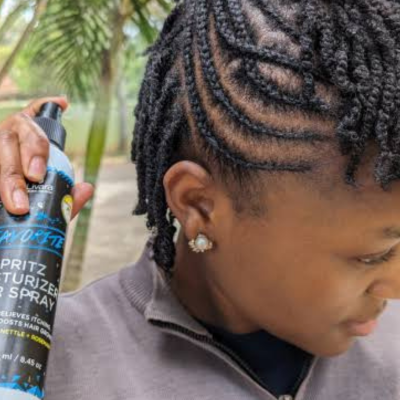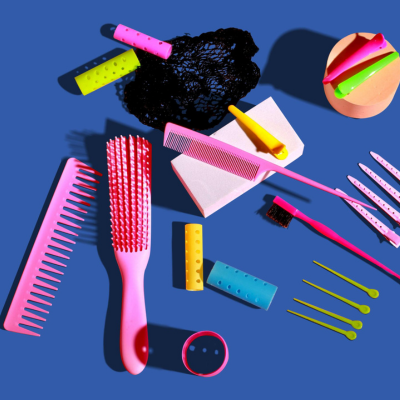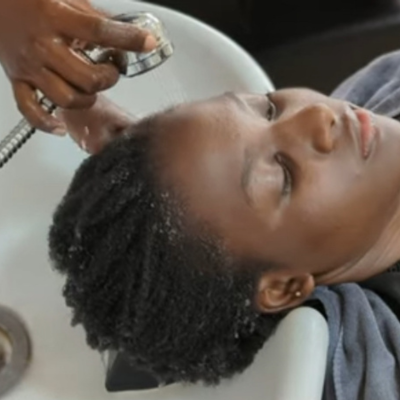- Support 24/7
- +1 (480) 468-4543
- livara@mylivara.com
The Link Between Breakouts and Dirty Hair
Low Manipulation Styles: Everything You Need To Know
November 15, 2023
Livara’s Black Friday Extravaganza – Enjoy 20% Off Exclusive Natural Hair and Skin Products
November 17, 2023
The relationship between your hair and skin is intricate, and maintaining clear, healthy skin may require an understanding of the connection. In this article we’ll examine the effects of unclean hair on skin health, as well as one particular issue: the impact of bangs on skin quality. At the end of this article, you’ll know how exactly it is that hair can affect your skin, and how to deal with it.
Dirty Hair and Skin Breakouts
If you don’t wash your hair, a mixture of natural oils, sweat, and environmental pollutants like dust can build up. For people who have bangs or hairstyles where the hair extends to the face, this problem takes a distinct form.
Your skin can become irritated and you may experience break outs in the area around your forehead due to the oils and products from your hair. These oils and product residues can get transferred onto your skin, which can cause inflammation, clogged pores, and a much higher risk of acne in that area.
Additionally, your pillowcase can also be a means through dirty hair affects your skin. Sleeping with dirty hair on a pillowcase creates a direct pathway for the transfer of oils and residues from your hair to your face. Your scalp is constantly producing sebum, and coupled with the hair products you use and pollutants your hair may attract, this mixture may build up on the pillowcase especially if left unwashed.
When you sleep with your hair uncovered and your face comes into contact with this pillowcase as you sleep, these substances are transferred onto your skin. This contact may clog pores, creating the perfect environment for acne and breakouts.
How to Deal With And Prevent Breakouts From Dirty Hair
1. Regular Hair Washing:
Establish a consistent hair washing routine to get rid of excess oil, dirt and product residues on your scalp. Use a sulfate-free shampoo that’s gentle on your strands like our Sapphire Hair Shampoo.
2. Skincare:
Make sure to follow through with the necessary skincare, especially if you’ve already broken out from dirty hair. Cleanse your face with a mild, non-comedogenic cleanser to effectively cleanse the pores.
Use products containing salicylic acid, like our Pearl Facial Cleanser, or benzoyl peroxide to help control breakouts. If you’ve got sensitive skin, ensure to patch test new products on other parts of your skin to prevent further complications, or consult with a dermatologist for solutions tailored to your skin type.
3. Choose Skin-Friendly Hair Products:
Use hair products with formulations that are less likely to cause skin irritation or clog pores. The hair products made by Livara are unlikely to cause such issues, as they’re made with gentle natural ingredients.
4. Hands-Free Hair Handling:
Refrain from touching your hair and then your face while styling or generally handling your hair. By doing this you’ll minimize the risk of transferring oils and bacteria from your hair to your facial skin.
5. Nocturnal Hair Protection with a Bonnet:
Consider wearing a satin or silk bonnet as you sleep. These materials help contain oils and moisture in your hair and prevents direct contact between your hair and pillowcase, reducing the likelihood of transferring residues to your face. Additionally, a bonnet can help maintain your hairstyle and minimize friction between your beddings and hair, preventing breakage.
6. Mindful Hair Product Application:
When using hair products, take care not to get any on your face or forehead. If they come into contact, wash your face right away with a gentle cleanser to get rid of any substances that may have transferred.
7. Hydration:
To promote general skin health, stay hydrated. Drinking enough water helps to flush out toxins, which helps to promote a clearer complexion
Bottomline
Dirty hair can be the cause of your breakouts, especially if you have if have styles like bangs where hair hoovers over your forehead. To deal with breakouts from this or prevent them entirely, the tips we’ve outlined can come in handy.
We’d love to hear from you! Let us know your thoughts in the comments below. Have you had breakouts from dirty hair before?



